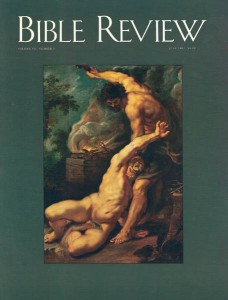The Torah—the five books of Moses—has rightly been called a book of Law. It is, however, idealized Law—what should be, or, more precisely, what God intended. In the second section of the Hebrew Bible—the Prophets—we learn about the reality.
In Jewish tradition, the second section of the Bible, is composed of Former Prophets and Latter Prophets. Former Prophets includes the books of Joshua, Judges, Samuel and Kings, which narrate the history of Israel from its settlement of the land of Canaan until the destruction of the First Temple. This corpus views some six centuries of Israelite history as a disastrous failure: Israel failed to fulfill the conditions of its covenant with God, on which its well-being depended.
The corpus of the Latter Prophets comprises the oracles of named prophets. These oracles were proclaimed from the middle of the monarchic period (mid-eighth century B.C.E.)a to the restoration after the Babylonian Exile (end of the sixth century B.C.E.). They expound a consistent interpretation of the events that befell Israel from the viewpoint of God, with warnings and consolations related to this interpretation.
The Torah is mainly legislating literature, in a way constitutional literature, that lays down in God’s name rules and standards of individual and corporate behavior aimed at fashioning Israel into a holy people. The laws of the Torah are formulated in a variety of styles: rulings for hypothetical cases, positive and negative commandments and rhetorical elements designed to move the recipients to obedience.
Already a library member? Log in here.
Institution user? Log in with your IP address.

